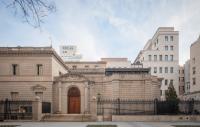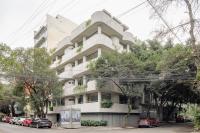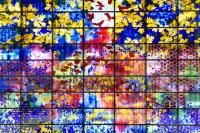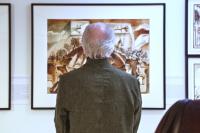Ghigi Square/garden
Morciano di Romagna, Rimini, Italy
Preger Associates and Enrica Dall'Ara
Design date: 2004
Construction date: 2006
The public square and garden along the via Roma, in Morciano di Romagna (Rimini-Italy), is part of the works defined within the Urban Reclamation Plan for the complex which formerly hosted the Ghigi pasta-factory, located near the town centre. The project plans to convert the disused factory to new shops, houses and offices. The implementation of the proposal is based in two topics: - the will of linking the new filed to the urban compact pattern of the central area, featured by the spreading and continuity of the commercial system and by the continuos edification along the streets that end in the ex-factory’s area, where the town acquires the nature typical of the city-garden. - the possibility of “opening” the factpry, corssing it with a new pedestrian axis that would join the historical centre, the Marecchia river park and the natural context of the sorrounding hills. In the frame of the Urban Reclamation Plan, a wide part along the via Roma has been destinated to a subterranean parking area and a square/garden crossed by the pedestrian axis. The vegetation defines walls that divide the square from the adjacent spaces (private gardens and parking areas), vice versa the square contours are open by the entrance from the urban streets, to create a more closed and intimate space but fluently related with the surrounding context. The square (which covers the underground parking) is created through a minor terrain-modelling, a slight tectonics, made up of stones, consisting of parts below and above the water level, similar to artificial banks. The garden starts where the parking architecture stops and the ground becomes natural soil, providing the vegetation with optimum conditions to grow. The layout of the square and garden is conceived as a cadenced succession of simple-shaped sectors running along the pedestrian path, characterized by different materials, textures and lights. Some sectors are sunny and dry, others are wet, others more are made up of simple grass with isolated trees and their shadows.
- Landscape Architects
- P'ARC
- Location
- Morciano di Romagna, Rimini, Italy
- Year
- 2006














